Nigeria
The wealth of Africa’s richest man, Aliko Dangote and four other Nigerians is enough to end poverty in Africa’s most populous nation, according to a research published by the charity group, Oxfam.
The report titled ‘Inequality in Nigeria – Exploring the drivers,’ said despite the current economic recession in the country, ‘‘a small group of elites enjoys ever-growing wealth,’‘ whiles ‘‘more than half of the Nigerian population still grapples with extreme poverty.’‘
‘‘In Nigeria, the scale of economic inequality has reached extreme levels, and it finds expression in the daily struggles of the majority of the population in the face of accumulation of obscene amounts of wealth by a small number of individuals.
‘‘While more than 112 million people were living in poverty in 2010, The richest 4 Nigerian man will take 42 years to spend all of his wealth at 1 million per day,’‘ the report noted in its Executive Summary.
According to the group’s calculations, to lift all Nigerians living below the extreme poverty line, the amount of money needed will be about $24bn, ‘‘This amount of money is just lower than the total wealth owned overall by the five richest Nigerians in 2016, which was equal to $29.9 billion.’‘
They added that amount of money the richest Nigerian man (in this case Aliko Dangote) can earn annually from his wealth is sufficient to lift 2 million people out of poverty for one year. Nigeria’s extreme poverty line is currently pegged at $1.90.
Five richest Nigeria according to Forbes Magazine
Aliko Dangote – cement and other investments (net worth $14.4bn)
Mike Adenuga – telecommunication (net worth $9.9 billion)
Femi Otedola – oil industry and business (net worth US$1.85 billion)
Folorunsho Alakija – oil industry, business and fashion (net worth $1.55 billion) and
Abdul Samad Rabiu – businessman, sugar refining, cement, real estate (net worth $1.1 billion).
Government kicks over the report but businessman says it’s unfair
Local media portal, Vanguard Nigeria, carried reactions to the Oxfam report with a top business executive arguing that the authors of the report had unfairly linked poverty with wealth created by genuine individuals.
According to Tola Odukoya – CEO of FSL Asset Management Limited, the five persons listed were not directly responsible for alleviating poverty in the country and that it was purely a responsibility of government which controlled the common wealth.
‘‘The report is not too far from the truth. There is no doubt that there is so much poverty in the country, but I don’t think it is fair to the people mentioned in the report because they are private businessmen, who have built their wealth through hard work. The level of poverty is something that should be addressed to the government,” he said.
But a government representative at the event which was heald in Abuja also expressed concern over portions of the report. The Federal government via a Minister of State, Hajia Zainab Ahmed, argued that the report did not have a requisite methodology to analyze and appraise Nigerian affairs.
“I was worried by the language, tone and style of the report, and this made me ask: what was at the back of the mind of the authors when the report was being written?
“When I looked at the report, I was worried about certain concepts, such as ‘who are the elite?’ There was no definition of terms, such as elite and poverty. More worrisome was if the report falls into the hands of aggrieved individuals, how would they react?
“To us in Nigeria, when we find problems, we pray for the leaders. Let us think Nigeria, write Nigeria and behave like Nigerians,” an official who represented the Ministry noted.



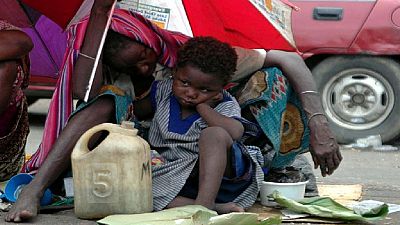

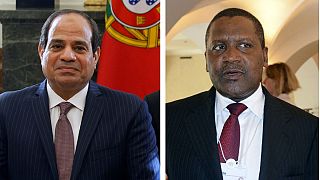
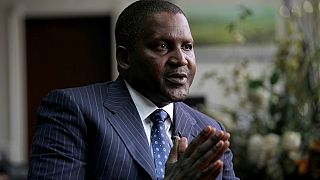
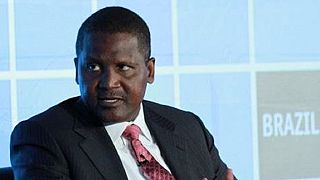
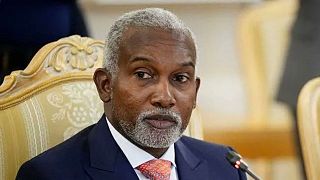





Go to video
U.S. slashes visa duration for some African nationals amid policy shift
02:05
WAFCON: Super Falcons fans optimistic about the team's performance
01:06
Brazil launches major security operation ahead of BRICS Summit
01:30
Nigerian singer Tems launches Leading Vibe Initiative to support women in music
Go to video
World leaders confront gap between rich and poor at Financing for Development meeting
00:52
Nigeria’s Peter Obi to contest 2027 election, opposition coalition in jeopardy